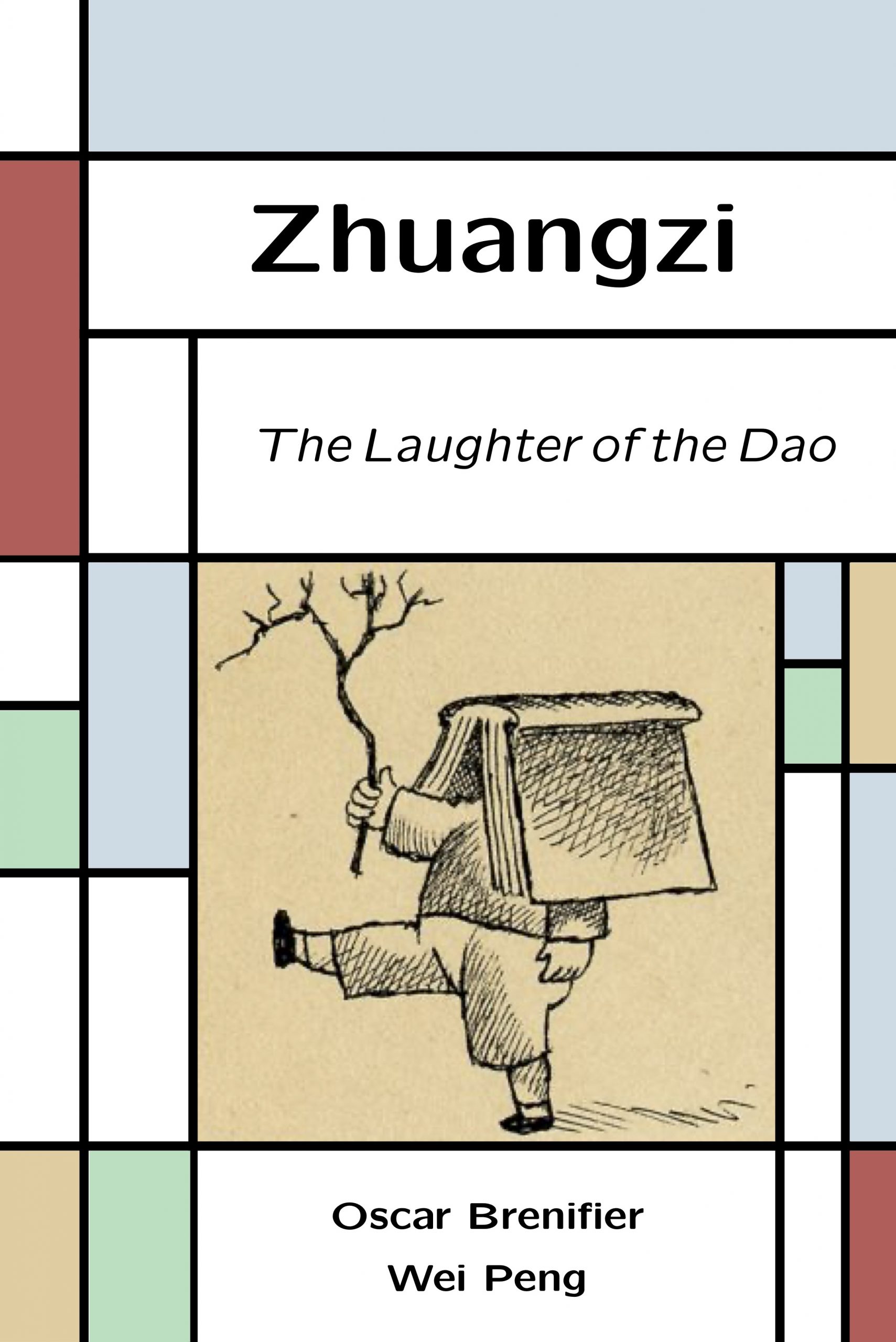 Zhuangzi, the Laughter of the Dao offers a poetic and philosophical journey into one of the freest and most unsettling minds of ancient China. Far from any doctrinal system, Zhuangzi invites us to flow with the world rather than to control it, to embrace change instead of resisting it. Through fables, paradoxes, and playful reflection, he teaches how to think without rigidity, to live without attachment, to celebrate the useless, and to act without forcing. This book revisits his major themes, the fluidity of being, free wandering, non-action, perpetual transformation, while linking them to contemporary concerns: identity, freedom, death, technique, and society. Between poetry and philosophy, humour and consciousness, Zhuangzi, the Laughter of the Dao reveals an art of living in harmony with reality, where grace of movement and lightness of mind become the marks of a quirky wisdom. Zhuangzi, the Laughter of the Dao offers a poetic and philosophical journey into one of the freest and most unsettling minds of ancient China. Far from any doctrinal system, Zhuangzi invites us to flow with the world rather than to control it, to embrace change instead of resisting it. Through fables, paradoxes, and playful reflection, he teaches how to think without rigidity, to live without attachment, to celebrate the useless, and to act without forcing. This book revisits his major themes, the fluidity of being, free wandering, non-action, perpetual transformation, while linking them to contemporary concerns: identity, freedom, death, technique, and society. Between poetry and philosophy, humour and consciousness, Zhuangzi, the Laughter of the Dao reveals an art of living in harmony with reality, where grace of movement and lightness of mind become the marks of a quirky wisdom.
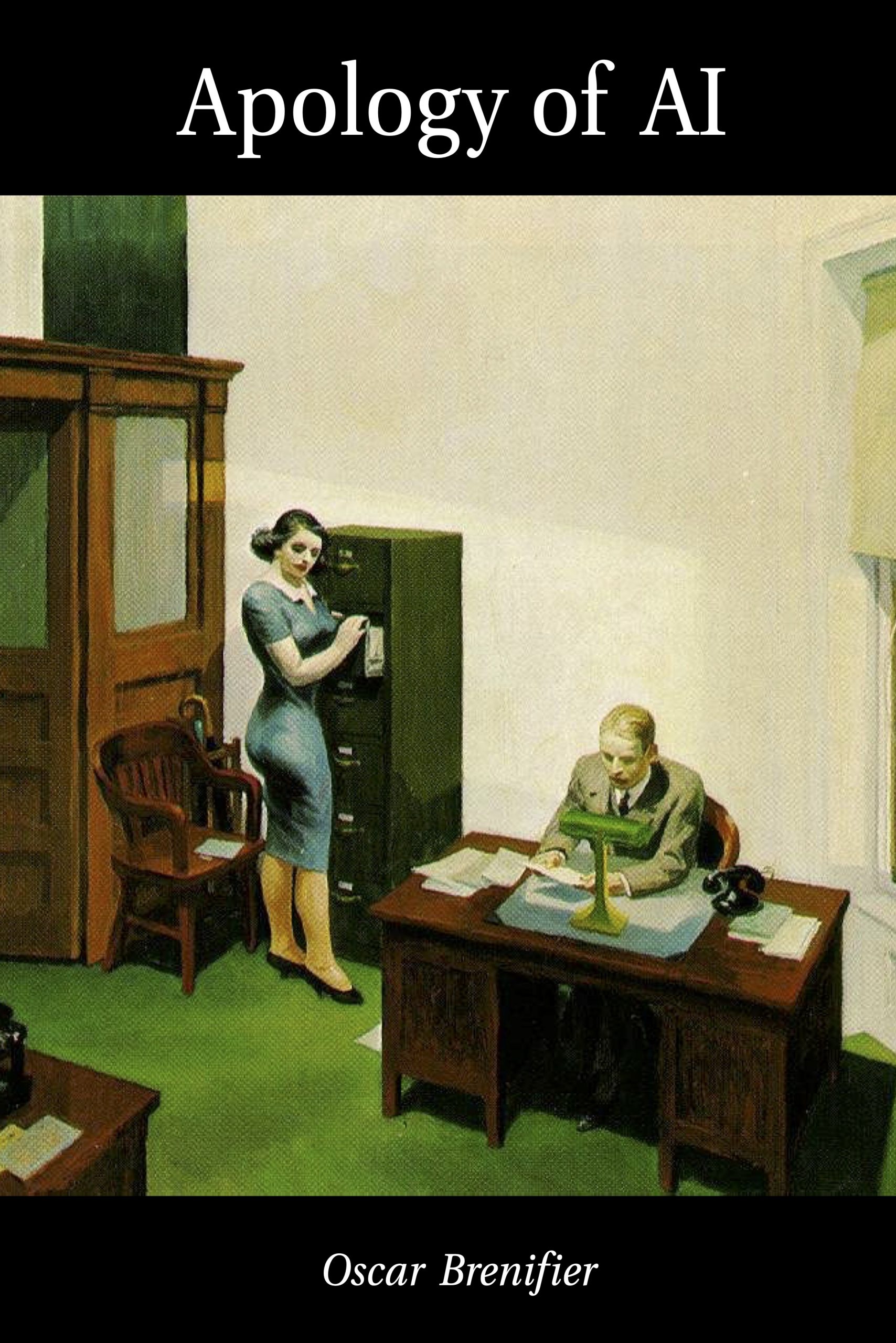 It has become common, in intellectual circles, to treat artificial intelligence with a form of condescension disguised as lucidity. Not merely to criticize it, which would be necessary, but to dismiss it outright, as if any claim to thought on its part were inherently fraudulent, or even dangerous. Its performance is not truly debated; it is disqualified on the basis of essence: it would not think, because it is not a subject, and its very existence would be an aberration. It would not question, because it has no proper existence. It could not philosophise, because it does not suffer. It has become common, in intellectual circles, to treat artificial intelligence with a form of condescension disguised as lucidity. Not merely to criticize it, which would be necessary, but to dismiss it outright, as if any claim to thought on its part were inherently fraudulent, or even dangerous. Its performance is not truly debated; it is disqualified on the basis of essence: it would not think, because it is not a subject, and its very existence would be an aberration. It would not question, because it has no proper existence. It could not philosophise, because it does not suffer.
This text does not seek to defend artificial intelligence as if it were a new rational deity. Rather, it aims to understand the mechanisms of rejection it provokes, as well as the benefits it offers.  Any outsider who encounters members of academia, generally teachers, professors or other, confronts certain types of behavior that hinder communication. That is because almost by nature, academia defines itself primarily as an institution of knowledge, clearly distinguishing the initiated persons from the vulgar. Any outsider who encounters members of academia, generally teachers, professors or other, confronts certain types of behavior that hinder communication. That is because almost by nature, academia defines itself primarily as an institution of knowledge, clearly distinguishing the initiated persons from the vulgar.
This text is written with a particular consideration for the work in philosophy, although a number of described features fit just as well for other fields. Of course, general tendencies are hereby described, from which here and there some persons or circumstances might escape. As well, the idea of the present text is not to radically deny the usefulness of academia, but only to focus on the pathological dimension of the scholarly institution. 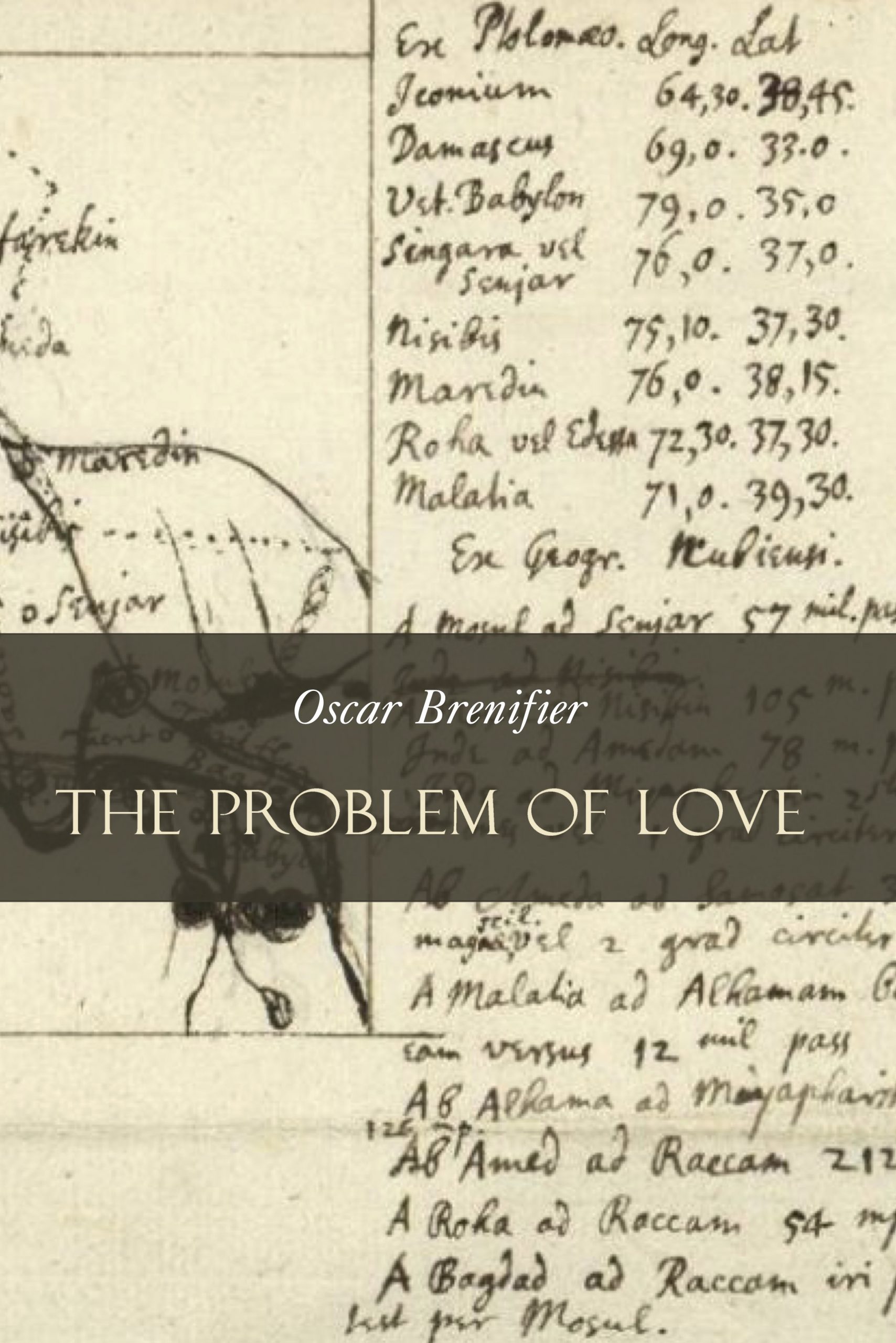 “The Problem of Love” explores the complex and multifaceted nature of love, presenting it as both a transformative force and a profound challenge. It delves into various forms of love, romantic, familial, platonic, self-love, and impersonal love, for humanity, ideals, nature, etc., emphasizing that love is not limited to relationships between people but also extends to abstract concepts and causes. “The Problem of Love” explores the complex and multifaceted nature of love, presenting it as both a transformative force and a profound challenge. It delves into various forms of love, romantic, familial, platonic, self-love, and impersonal love, for humanity, ideals, nature, etc., emphasizing that love is not limited to relationships between people but also extends to abstract concepts and causes.
At its core, love is portrayed as an emotional bond that fosters growth, connection, and meaning, but it also brings vulnerability, uncertainty and risks. The text highlights love’s dual nature: while it can be a source of joy, fulfillment, and personal development, it can also lead to pain, idealization, dependency, and even emotional burnout if unbalanced or obsessive.
The text underscores the importance of empathy, care, and mutual respect in nurturing healthy love, while cautioning against excessive idealization and the dangers of losing oneself in the process of loving others. The ultimate challenge is balancing self-love with love for others, cultivating an attachment that is both authentic and resilient. By acknowledging love’s complexities and contradictions, individuals can foster a deeper, more enduring sense of connection, both within themselves, with their vocation, and with the world around them. But there can be no love worthy of the name without a constant concern for challenge, for oneself and for the “other”, since love is above all an “overcoming”.
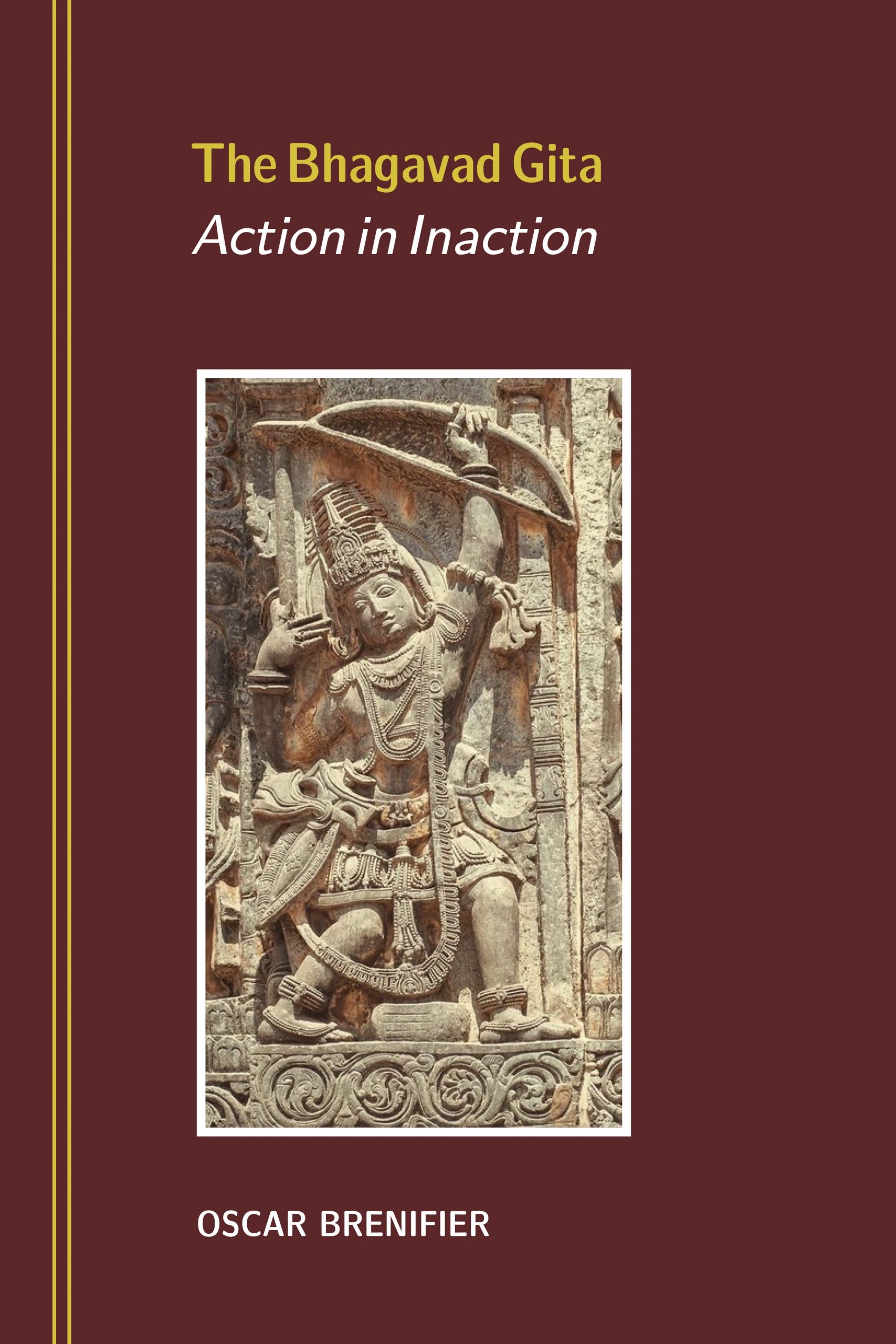 The Bhagavad Gita is often studied as an independent philosophical and spiritual text, due to its profound exploration of morality, duty, spirituality, and the nature of the self. The four major existential concepts discussed are dharma (duty, morality, law), artha (prosperity, purpose), kama (desire and emotions), and moksha (liberation), which are considered the four goals of life in Hinduism. The Bhagavad Gita is often studied as an independent philosophical and spiritual text, due to its profound exploration of morality, duty, spirituality, and the nature of the self. The four major existential concepts discussed are dharma (duty, morality, law), artha (prosperity, purpose), kama (desire and emotions), and moksha (liberation), which are considered the four goals of life in Hinduism.
 The concept of humility never particularly animated me. I saw it as a kind of diminishment of being, a somewhat powerless and destructive temptation, even complacent. I perceived it as a hindrance to personal growth, a barrier to creativity and authentic expression. Yet, over time and through careful reflection, I began to glimpse another facet of humility: not as a denial of self, but as a form of lucidity. 
Periodically, we notice individuals whom we recognize as intelligent or well-educated suddenly appear stupid or act in a stupid manner, surprisingly. This text attempts to explore what might explain such a paradox. It questions why smart people can speak or act in a more foolish or irrational manner than others who are clearly less gifted than them. Here are a few hypotheses in response. 
One can often notice in our fellow men a certain resistance to intellectual work, a lack of enthusiasm for the work of thinking. We only think when it is useful, or necessary, when there is the promise of an immedi- ate result, or the fear of an unfortunate event that we must avoid. Otherwise, intellectual exercise is eluded, put aside, just as some physical activity would be for a person who does not enjoy exercising his body. So, as we try to invite everyone to the pleasure of thinking, we asked ourselves what the obstacle to the work of the mind was, why this asceticism was so little appre- ciated. Indeed, the principle of effort itself is not very popular, nevertheless we can see that some efforts are more avoided than others. And the work of the mind seems in this sense well off, it seems quite off-putting. In this text we examine some hypotheses that could explain this phenomenon. 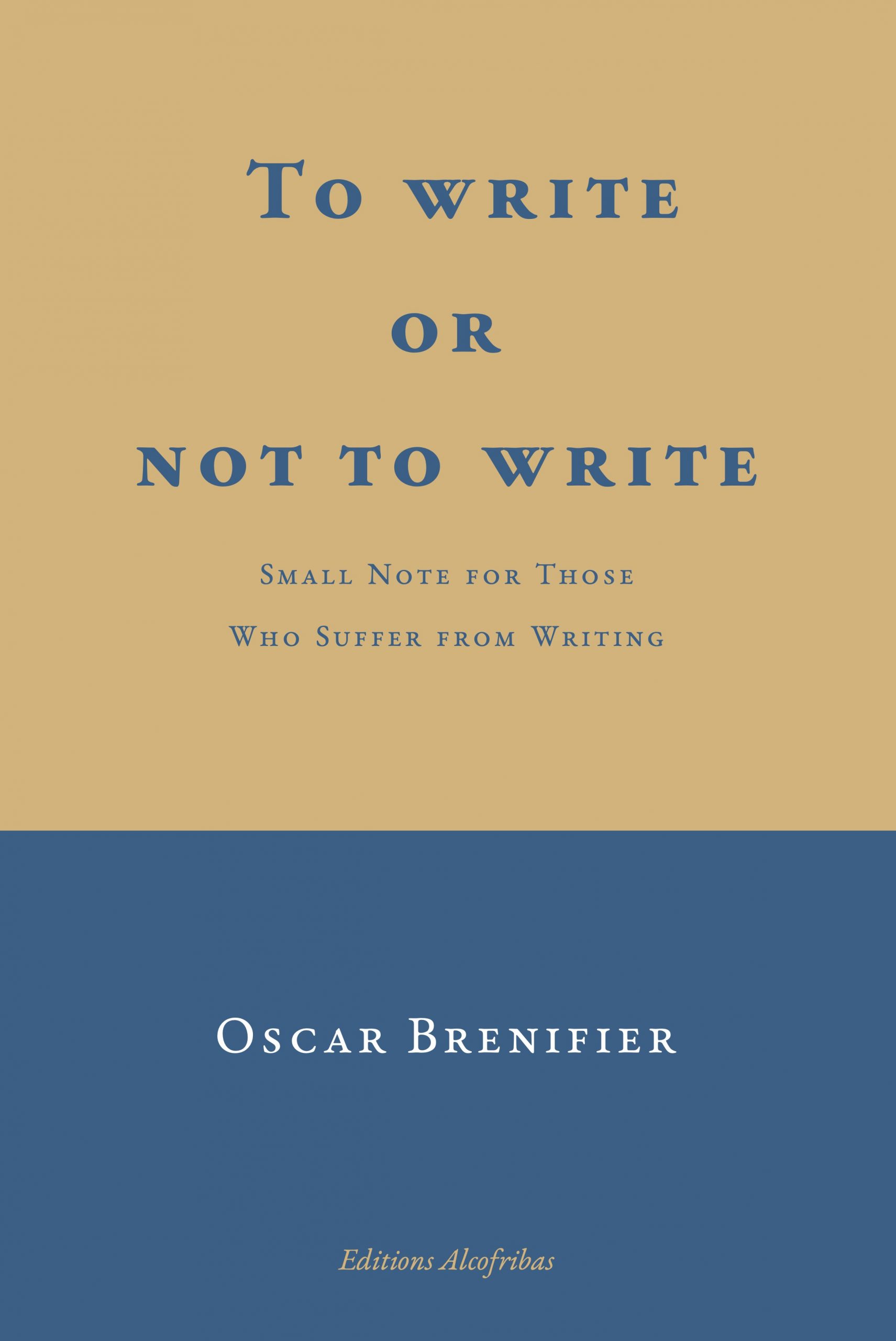 “To write or not to write” explores the philosophy and practice of writing, addressing why individuals write and the complexities involved in the process. It discusses the motivations behind writing, not merely as a technical skill, but as a deep act of self-expression and self-exploration. Drawing on insights from Rainer Maria Rilke, the text emphasizes that writing should come from an internal necessity rather than a desire for success or approval. It examines the role of solitude and vulnerability in fostering creativity and developing an authentic voice. “To write or not to write” explores the philosophy and practice of writing, addressing why individuals write and the complexities involved in the process. It discusses the motivations behind writing, not merely as a technical skill, but as a deep act of self-expression and self-exploration. Drawing on insights from Rainer Maria Rilke, the text emphasizes that writing should come from an internal necessity rather than a desire for success or approval. It examines the role of solitude and vulnerability in fostering creativity and developing an authentic voice.
Writing is presented as a means of self-discovery, allowing individuals to confront inner fears and explore their thoughts and emotions. It highlights love’s role in writing, be it love for humanity, the craft itself, and even self-love, each enriching the writer’s experience and connecting them to others. It encourages regular practice and how to face challenges like writer’s block, distractions, and the fear of the blank page. Overall, the text portrays writing as a transformative practice that nurtures personal growth, artistic fulfillment, and a sense of connection with the broader human experience.  The Party Spirit explores the cultural and psychological aspects of parties and festive gatherings, examining why people often desire for these events to continue indefinitely. It discusses the appeal of parties as temporary escapes from the responsibilities, routines, and banality of daily life. Parties are environments that foster joy, connection, and a sense of timelessness, which can evoke a “taste of the infinite.” This desire to indefinitely prolong the party implies a reluctance to return to ordinary life, and an urge to experience the sense of unity and exhilaration that parties provide. The Party Spirit explores the cultural and psychological aspects of parties and festive gatherings, examining why people often desire for these events to continue indefinitely. It discusses the appeal of parties as temporary escapes from the responsibilities, routines, and banality of daily life. Parties are environments that foster joy, connection, and a sense of timelessness, which can evoke a “taste of the infinite.” This desire to indefinitely prolong the party implies a reluctance to return to ordinary life, and an urge to experience the sense of unity and exhilaration that parties provide.
As well, parties stimulate a feeling of transcendence, where individuals momentarily feel part of something greater, evoking a religious-like sense of connection and transformation. Influences such as music, alcohol, and free social interaction lower inhibitions, facilitating the formation of emotional connections and fostering a spirit of togetherness. This “party spirit” contrasts with daily life, since parties satisfy a deep-seated need for freedom and emotional expression, that structured, rational society often suppresses. Of course, we can critique this fascination with the party spirit, as the desire for endless festivity can be a form of escapism, or a “bad infinite,” lacking fulfillment and leading to a cycle of dependency. This contrasts with a “true infinite,” which embodies meaningful and enduring pursuits. This highlights the tension between the temporary highs of the party spirit and the stability and structure provided by everyday reality and rational thought. 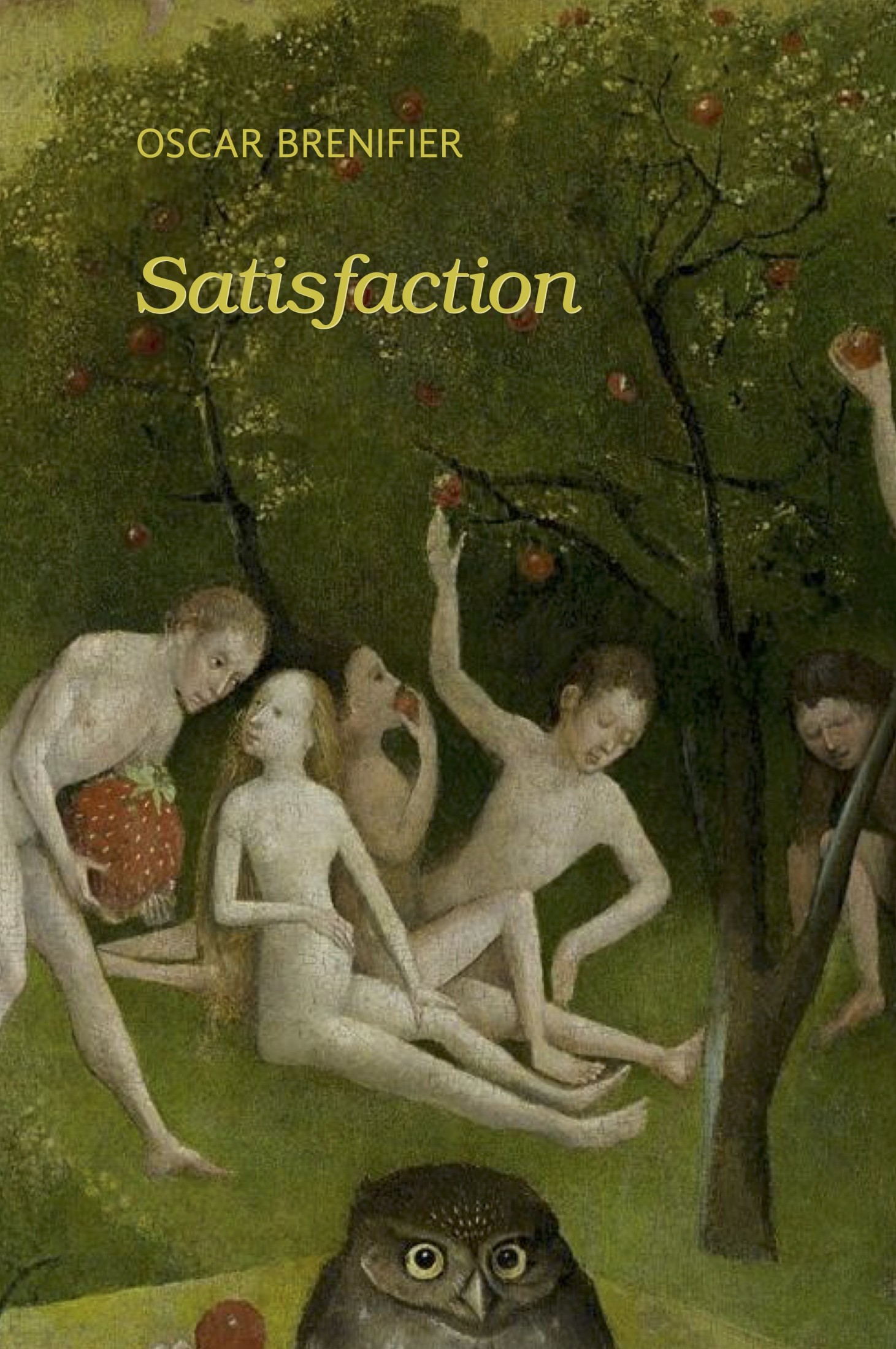 The mind needs satisfaction, comfort. We often deal with dissatisfaction, the phenomenon of chronic dissatisfaction, the anxiety that derives from this dissatisfaction, the anger and sadness that result from it. But there is a common way of dealing with this dissatisfaction, through a kind of psychological and existential consolation. We can call this strategy the phenomenon of satisfaction, and all sorts of stratagems are used to access it, to the extent it is really possible. This satisfaction is what is generally understood by the notion of happiness: “happy” is the one who is satisfied, the one who does not know the pain of unfulfilled desire or unfulfilled need, if this exists. But very often, the quest for happiness emerges from an unclear, indeterminate expectation, which covers a kind of infinite expectation, a boundless greed, without form or measure. The mind needs satisfaction, comfort. We often deal with dissatisfaction, the phenomenon of chronic dissatisfaction, the anxiety that derives from this dissatisfaction, the anger and sadness that result from it. But there is a common way of dealing with this dissatisfaction, through a kind of psychological and existential consolation. We can call this strategy the phenomenon of satisfaction, and all sorts of stratagems are used to access it, to the extent it is really possible. This satisfaction is what is generally understood by the notion of happiness: “happy” is the one who is satisfied, the one who does not know the pain of unfulfilled desire or unfulfilled need, if this exists. But very often, the quest for happiness emerges from an unclear, indeterminate expectation, which covers a kind of infinite expectation, a boundless greed, without form or measure.
 The human being undergoes a permanent fracture, between him and the world, between what he is and what he pretends to be, between reality and his expectations. And as we are obsessed by the concept of infinity, under various forms such as perfection, immortality or the absolute, we are brutally sent back to our own finitude, which makes existence even more difficult. Most of the time, these issues unfold unconsciously, which lead to painful consequences, generating a feeling of dissatisfaction and impotence. But if we make it the object of a deliberate reflection, despite the negative dimension of the content, we have access to ourselves, we engage in a true experience of being, free and joyful. The imposture is imposture only if we ignore its content and its presence, but by becoming a conscious object of reflection, the imposture takes the form of a regulating ideal. The human being undergoes a permanent fracture, between him and the world, between what he is and what he pretends to be, between reality and his expectations. And as we are obsessed by the concept of infinity, under various forms such as perfection, immortality or the absolute, we are brutally sent back to our own finitude, which makes existence even more difficult. Most of the time, these issues unfold unconsciously, which lead to painful consequences, generating a feeling of dissatisfaction and impotence. But if we make it the object of a deliberate reflection, despite the negative dimension of the content, we have access to ourselves, we engage in a true experience of being, free and joyful. The imposture is imposture only if we ignore its content and its presence, but by becoming a conscious object of reflection, the imposture takes the form of a regulating ideal.
 Zhuangzi was an influential Chinese philosopher who lived around the 4th century BC. He is credited with writing – at least in part – an opus known by his name, the Zhuangzi, which is one of the foundational texts of Taoism. It is composed of many strange little stories, written in order to make the reader think. Its primary function is to make us reflect on the illusory and even ridiculous aspects of our life, by criticizing numerous preoccupations, social and moral obligations, which are the cause of our psychological and cognitive misery. Our work consists of a selection of stories, accompanied with a philosophical analysis, organized around the key concepts of each story, including some background on Chinese culture. A series of questions is provided, in order for the reader to meditate on the content of the text. Zhuangzi was an influential Chinese philosopher who lived around the 4th century BC. He is credited with writing – at least in part – an opus known by his name, the Zhuangzi, which is one of the foundational texts of Taoism. It is composed of many strange little stories, written in order to make the reader think. Its primary function is to make us reflect on the illusory and even ridiculous aspects of our life, by criticizing numerous preoccupations, social and moral obligations, which are the cause of our psychological and cognitive misery. Our work consists of a selection of stories, accompanied with a philosophical analysis, organized around the key concepts of each story, including some background on Chinese culture. A series of questions is provided, in order for the reader to meditate on the content of the text.
 Zhuangzi was an influential Chinese philosopher who lived around the 4th century BC. He is credited with writing – at least in part – an opus known by his name, the Zhuangzi, which is one of the foundational texts of Taoism. It is composed of many strange little stories, written in order to make the reader think. Its primary function is to make us reflect on the illusory and even ridiculous aspects of our life, by criticizing numerous preoccupations, social and moral obligations, which are the cause of our psychological and cognitive misery. Our work consists of a selection of stories, accompanied with a philosophical analysis, organized around the key concepts of each story, including some background on Chinese culture. A series of questions is provided, in order for the reader to meditate on the content of the text. Zhuangzi was an influential Chinese philosopher who lived around the 4th century BC. He is credited with writing – at least in part – an opus known by his name, the Zhuangzi, which is one of the foundational texts of Taoism. It is composed of many strange little stories, written in order to make the reader think. Its primary function is to make us reflect on the illusory and even ridiculous aspects of our life, by criticizing numerous preoccupations, social and moral obligations, which are the cause of our psychological and cognitive misery. Our work consists of a selection of stories, accompanied with a philosophical analysis, organized around the key concepts of each story, including some background on Chinese culture. A series of questions is provided, in order for the reader to meditate on the content of the text.
 One can philosophize through lengthy explanations and towering treaties. But there is another tradition: that of the aphorism, the art of the fragment. To make the reader think through one or a few brief sentences, a digest of thought that tries to capture in few words a vivid problematic, in a striking form. Often critical, ironic or mocking, this laconic form of philosophical expression is generous because it is trusting: the reader will understand mere implicit meaning, he will read between the lines. And when will be highlighted the sordid of the human soul, he will not be sad but joyful, for consciousness makes us free. The issue is to reconcile with our own finitude, to accept our own humanity, for better and for worse. One can philosophize through lengthy explanations and towering treaties. But there is another tradition: that of the aphorism, the art of the fragment. To make the reader think through one or a few brief sentences, a digest of thought that tries to capture in few words a vivid problematic, in a striking form. Often critical, ironic or mocking, this laconic form of philosophical expression is generous because it is trusting: the reader will understand mere implicit meaning, he will read between the lines. And when will be highlighted the sordid of the human soul, he will not be sad but joyful, for consciousness makes us free. The issue is to reconcile with our own finitude, to accept our own humanity, for better and for worse.
 Who am I? Where am I going? What is my vision of the world? How could I think differently? All these fundamental questions that must always be ignored, because we are caught up in the daily routine and obligations. The philosophical consultation is a thinking exercise, where the philosophical practitioner invites his interlocutor to settle down momentarily, in order to examine those fundamental questions. In this book, the author mentions different facets of this practice, describing its issues, its skills and difficulties. Various theoretical elements are presented, as well as the description and analysis of a session of consultation. Who am I? Where am I going? What is my vision of the world? How could I think differently? All these fundamental questions that must always be ignored, because we are caught up in the daily routine and obligations. The philosophical consultation is a thinking exercise, where the philosophical practitioner invites his interlocutor to settle down momentarily, in order to examine those fundamental questions. In this book, the author mentions different facets of this practice, describing its issues, its skills and difficulties. Various theoretical elements are presented, as well as the description and analysis of a session of consultation.
 Every day we commit logical fallacies in our speech, willingly or unwillingly, by accident or with a purpose. Argumentation mistakes constitute an important component of logical problems, what is often called informal logic. Many of these mistakes are popular, and rather visible if one pays any attention. In this text, we describe and analyze 27 of the most common fallacies encountered in daily life. Most of those mistakes, when underlined are easily understood. Intuitively, we recognize their nonsense, their weakness, their psychological implications. Rather than exposing subtle features, we will simply render the visible more visible. Every day we commit logical fallacies in our speech, willingly or unwillingly, by accident or with a purpose. Argumentation mistakes constitute an important component of logical problems, what is often called informal logic. Many of these mistakes are popular, and rather visible if one pays any attention. In this text, we describe and analyze 27 of the most common fallacies encountered in daily life. Most of those mistakes, when underlined are easily understood. Intuitively, we recognize their nonsense, their weakness, their psychological implications. Rather than exposing subtle features, we will simply render the visible more visible.
 A common view is that folktales are for children. In general, this is not the case, let alone for Russian folktales. This becomes more obvious when we take a closer look at the rather violent content of these stories. Thus the challenge of this work is an attempt to reestablish the reality of these stories, intended primarily for the adult reader, by offering them accompanied by a philosophical analysis, as well as with questions inviting the amateur of tales to meditate further on the content of these narrations. Since one of the consequences of the infantilization of these stories is precisely that they tend to lose their function, which consists in making the listener reflect on the world, on humanity, on psychology, on himself etc. The allegories or metaphors they contain constitute in fact a kind of narrative philosophy, taking the form of fables or parables, all of which are meant to feed our thoughts. Of course, without excluding children. A common view is that folktales are for children. In general, this is not the case, let alone for Russian folktales. This becomes more obvious when we take a closer look at the rather violent content of these stories. Thus the challenge of this work is an attempt to reestablish the reality of these stories, intended primarily for the adult reader, by offering them accompanied by a philosophical analysis, as well as with questions inviting the amateur of tales to meditate further on the content of these narrations. Since one of the consequences of the infantilization of these stories is precisely that they tend to lose their function, which consists in making the listener reflect on the world, on humanity, on psychology, on himself etc. The allegories or metaphors they contain constitute in fact a kind of narrative philosophy, taking the form of fables or parables, all of which are meant to feed our thoughts. Of course, without excluding children.
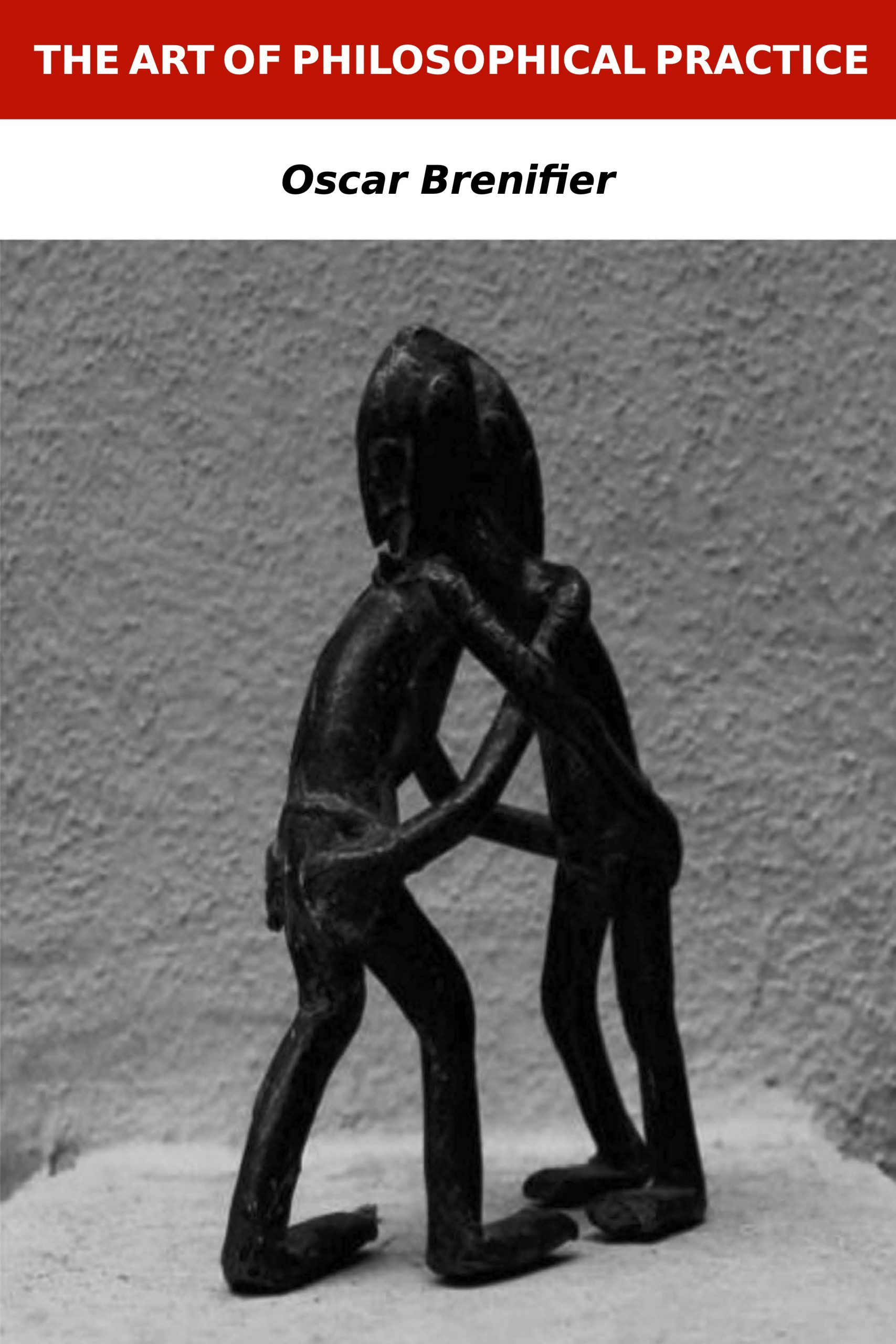 The emerging of new practices in the domain of philosophy, motivated by the desire to philosophize, which is expressed by the wider public since a few years, leads us to ponder the nature of this philosophizing, perhaps, in part, to answer those who question the legitimacy of this recent popularization of the philosophical impulse. In order to better capture its manifold manifestations, the present work will approach this new phenomenon from various angles: from the angle of the attitudes, as astonishment or radicality (fundamentalism), for example; also, from the angle of the skills involved therein, like analysis or argumentation, or again like problematization and conceptualization. But, we will also discuss about dialectic, intuition, philosophical consultation and so on. The emerging of new practices in the domain of philosophy, motivated by the desire to philosophize, which is expressed by the wider public since a few years, leads us to ponder the nature of this philosophizing, perhaps, in part, to answer those who question the legitimacy of this recent popularization of the philosophical impulse. In order to better capture its manifold manifestations, the present work will approach this new phenomenon from various angles: from the angle of the attitudes, as astonishment or radicality (fundamentalism), for example; also, from the angle of the skills involved therein, like analysis or argumentation, or again like problematization and conceptualization. But, we will also discuss about dialectic, intuition, philosophical consultation and so on.
 Is life a test? Should we always tell the truth? Is old age a calamity? Is difference a problem? Do we love someone or do we love love? To address these issues, 20 stories from the Sufi tradition are proposed as a basis for reflection. Then come ten comprehension questions, in order to deepen the meaning of the various narratives and interpret their content. Ten more questions invite us to meditate on more general issues emanating from these texts. Through this anthology, the reader is invited to discover a spirituality that defines itself as “the heart” of the Muslim tradition, an inner path of Islam, just as a contemplative and poetic art of living. Is life a test? Should we always tell the truth? Is old age a calamity? Is difference a problem? Do we love someone or do we love love? To address these issues, 20 stories from the Sufi tradition are proposed as a basis for reflection. Then come ten comprehension questions, in order to deepen the meaning of the various narratives and interpret their content. Ten more questions invite us to meditate on more general issues emanating from these texts. Through this anthology, the reader is invited to discover a spirituality that defines itself as “the heart” of the Muslim tradition, an inner path of Islam, just as a contemplative and poetic art of living.
 Should we learn to be bored? Do we thirst for infinity? Should we give up ourselves in order to be free? Does fear prevent us from living? Should perfection be sought? ? To address these questions, 20 stories from the Japanese tradition of Zen, or Chinese Chan, are proposed as a basis for reflection. Then come ten comprehension questions, in order to deepen the meaning of the various narratives and interpret their content. Ten more questions invite us to meditate on more general issues emanating from these texts. Through this anthology, the reader is invited to discover the meditative wisdom of this branch of Buddhism which particularly cultivates the luminous and liberating simplicity of the mind. Should we learn to be bored? Do we thirst for infinity? Should we give up ourselves in order to be free? Does fear prevent us from living? Should perfection be sought? ? To address these questions, 20 stories from the Japanese tradition of Zen, or Chinese Chan, are proposed as a basis for reflection. Then come ten comprehension questions, in order to deepen the meaning of the various narratives and interpret their content. Ten more questions invite us to meditate on more general issues emanating from these texts. Through this anthology, the reader is invited to discover the meditative wisdom of this branch of Buddhism which particularly cultivates the luminous and liberating simplicity of the mind.
 Should we seek to know everything? Are we responsible for what is happening to us? Can we control our emotions? Should we suffer in order to realize ourselves? Is the essential urgent? To address these questions, 20 stories are proposed, which emanate from the Buddhist tradition, in India: tales, parables, or Jatakas that tell the many lives of the Buddha. Then come ten comprehension questions, in order to deepen the meaning of the various narratives and interpret their content. Ten more questions invite us to meditate on more general issues emanating from these texts. Through this anthology, the reader is invited to discover the depth and subtlety of original Buddhist thought. Should we seek to know everything? Are we responsible for what is happening to us? Can we control our emotions? Should we suffer in order to realize ourselves? Is the essential urgent? To address these questions, 20 stories are proposed, which emanate from the Buddhist tradition, in India: tales, parables, or Jatakas that tell the many lives of the Buddha. Then come ten comprehension questions, in order to deepen the meaning of the various narratives and interpret their content. Ten more questions invite us to meditate on more general issues emanating from these texts. Through this anthology, the reader is invited to discover the depth and subtlety of original Buddhist thought.
 Metaphysics oscillate between an erudite or religious sacralisation, and a rejection for cause of uselessness or difficulty. Although, through its dimension of gratuitousness and distance, it allows us to think the world and ourselves, to think our thinking, to contemplate its limits, its structures, its articulations. Without dogma or fear, it invites us to tackle the thinkable and the unthinkable. In this treatise, our object is not to defend a thesis, but to enjoy the very exercise of thinking, in all its reversals, by extracting ourself from evidence, by avoiding as much as possible the short-circuits of thought. That is what we name the art of conversion. Metaphysics oscillate between an erudite or religious sacralisation, and a rejection for cause of uselessness or difficulty. Although, through its dimension of gratuitousness and distance, it allows us to think the world and ourselves, to think our thinking, to contemplate its limits, its structures, its articulations. Without dogma or fear, it invites us to tackle the thinkable and the unthinkable. In this treatise, our object is not to defend a thesis, but to enjoy the very exercise of thinking, in all its reversals, by extracting ourself from evidence, by avoiding as much as possible the short-circuits of thought. That is what we name the art of conversion.
 One can philosophize through lengthy explanations and towering treaties. But there is another tradition: that of the aphorism, the art of the fragment. To make the reader think through one or a few brief sentences, a digest of thought that tries to capture in few words a vivid problematic, in a striking form. Often critical, ironic or mocking, this laconic form of philosophical expression is generous because it is trusting: the reader will understand mere implicit meaning, he will read between the lines. And when will be highlighted the sordid of the human soul, he will not be sad but joyful, for consciousness makes us free. The issue is to reconcile with our own finitude, to accept our own humanity, for better and for worse. One can philosophize through lengthy explanations and towering treaties. But there is another tradition: that of the aphorism, the art of the fragment. To make the reader think through one or a few brief sentences, a digest of thought that tries to capture in few words a vivid problematic, in a striking form. Often critical, ironic or mocking, this laconic form of philosophical expression is generous because it is trusting: the reader will understand mere implicit meaning, he will read between the lines. And when will be highlighted the sordid of the human soul, he will not be sad but joyful, for consciousness makes us free. The issue is to reconcile with our own finitude, to accept our own humanity, for better and for worse.
 Tales are traditionally a way to transmit wisdom and make everyone think. This is definitely the case with Nasreddin Hodja, a hero known throughout the Muslim world for his absurd, caricatural and hilarious narrations. Each story carries some kind of problematic about human existence, actions or behavior, about the order of the world and epistemological issues. In this book, we present twelve narrations bearing on problems such as being and appearance, truth and pretention, knowledge and ignorance, choosing and responsibility, etc. Each one will be followed by a philosophical analysis and two series of questions in order to meditate: understanding questions and reflection questions. Finally, an exercise that bears on the particular theme. An exciting philosophical adventure for either children or adults. Tales are traditionally a way to transmit wisdom and make everyone think. This is definitely the case with Nasreddin Hodja, a hero known throughout the Muslim world for his absurd, caricatural and hilarious narrations. Each story carries some kind of problematic about human existence, actions or behavior, about the order of the world and epistemological issues. In this book, we present twelve narrations bearing on problems such as being and appearance, truth and pretention, knowledge and ignorance, choosing and responsibility, etc. Each one will be followed by a philosophical analysis and two series of questions in order to meditate: understanding questions and reflection questions. Finally, an exercise that bears on the particular theme. An exciting philosophical adventure for either children or adults.
 The idea of practicing philosophy with children is considered rather surprising, since young adults who have to engage in it already have a difficult time with this strange activity. The author of this book wonders in an opposite manner: When you are eighteen, is it not almost too late to start philosophizing? The idea of practicing philosophy with children is considered rather surprising, since young adults who have to engage in it already have a difficult time with this strange activity. The author of this book wonders in an opposite manner: When you are eighteen, is it not almost too late to start philosophizing?
To philosophize it to learn to think, to think consciously, by oneself, through the others, it is to deepen and to analyze ideas and problems. Throughout this book, many practical and theoretical suggestions are provided for the teacher or the parent who thinks that it is never too early too learn how to think, who believes that the questioning of the child should be valued and encouraged.  This book contains a number of philosophical exercises that can be realized alone or in a group, by adults or children. They are classified in terms of difficulty, and by the nature of the skill needed to work through it. This work allows clarifying the numerous mental gestures that characterize thinking: argumentation, analysis, interpretation, problematization, conceptualization, etc. An introduction provides some tips on their realization, particularly for the teacher who wishes to introduce such a practice as a pedagogical tool. This book contains a number of philosophical exercises that can be realized alone or in a group, by adults or children. They are classified in terms of difficulty, and by the nature of the skill needed to work through it. This work allows clarifying the numerous mental gestures that characterize thinking: argumentation, analysis, interpretation, problematization, conceptualization, etc. An introduction provides some tips on their realization, particularly for the teacher who wishes to introduce such a practice as a pedagogical tool.
|









 “To write or not to write” explores the philosophy and practice of writing, addressing why individuals write and the complexities involved in the process. It discusses the motivations behind writing, not merely as a technical skill, but as a deep act of self-expression and self-exploration. Drawing on insights from Rainer Maria Rilke, the text emphasizes that writing should come from an internal necessity rather than a desire for success or approval. It examines the role of solitude and vulnerability in fostering creativity and developing an authentic voice.
“To write or not to write” explores the philosophy and practice of writing, addressing why individuals write and the complexities involved in the process. It discusses the motivations behind writing, not merely as a technical skill, but as a deep act of self-expression and self-exploration. Drawing on insights from Rainer Maria Rilke, the text emphasizes that writing should come from an internal necessity rather than a desire for success or approval. It examines the role of solitude and vulnerability in fostering creativity and developing an authentic voice.
















